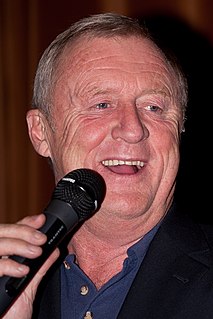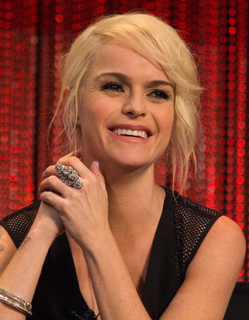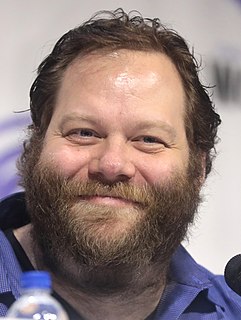A Quote by Grace Jones
Growing up in Jamaica, the Pentecostal church wasn't that fiery thing you might think. It was very British, very proper. Hymns. No dancing. Very quiet. Very fundamental.
Related Quotes
I've known a lot of very religious people. My mother is very religious, but she was also very - is very private about it. She - when I was growing up, she never went to church. She just prayed and read her Bible and kept it to herself. So I'm not from a background of flamboyant believers. It's much more a personal issue.
One of the things that is wonderful about hymns is that they are a sort of universally shared poetry, at least among certain populations. There isn't much of that anymore either. There are very few poems people can recite, but there are quite a few hymns that, if you hum a few bars, people can at least come up with two verses. Many of the older hymns are very beautiful.
I think it's very common that scientists or technical people have an artistic side. Sometimes they are very accomplished musicians. Sometimes they have very fine tastes according to art or design. And often, they've spent a big chunk of their childhood or they're growing-up years trying to get in very good at those activities.









































